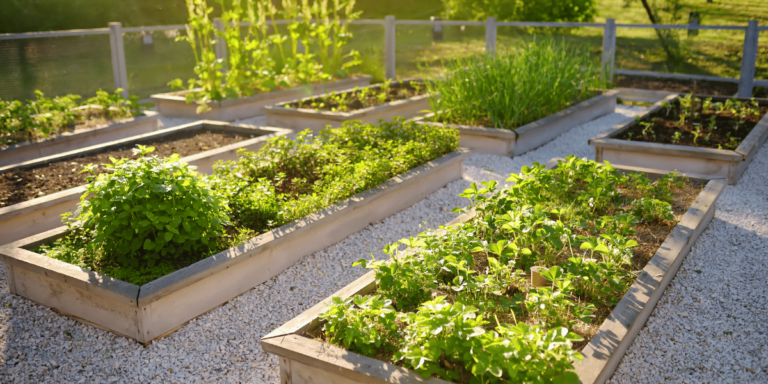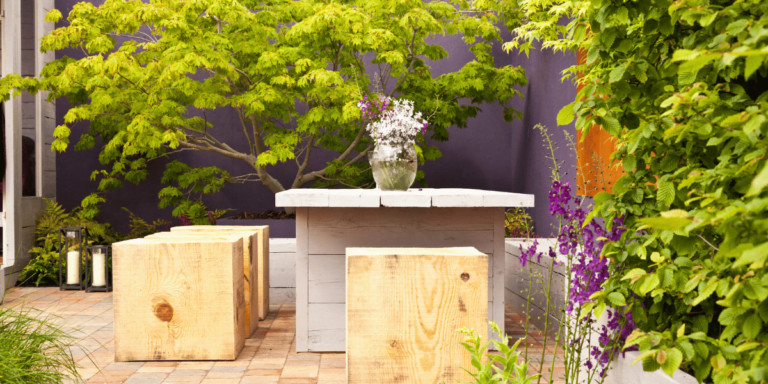Welcome to the ultimate guide on home composting solutions! If you’re looking for ways to embrace a greener lifestyle and contribute to sustainable waste management, home composting is the perfect solution for you. By recycling organic materials from your kitchen and yard, you can not only reduce waste but also create nutrient-rich compost that nourishes your garden. Let’s delve into the incredible world of home composting and discover the benefits it offers for you and the environment.
Key Takeaways:
- Home composting is a simple and impactful way to reduce waste and contribute to a greener lifestyle.
- Composting is the natural process of recycling organic materials and transforming them into nutrient-rich compost.
- The science behind composting involves millions of microscopic organisms that break down organic material.
- Home composting offers numerous benefits, including waste reduction, improved soil health, and affordable waste management.
- By composting at home, you are actively participating in sustainability and making a positive impact on the environment.
What is Composting?
Composting is a natural process of recycling organic materials into a nutrient-rich soil conditioner called compost. By recycling materials such as vegetable scraps and leaves, composting reduces waste and promotes a sustainable and environmentally-friendly lifestyle. Compost enriches soil health and structure, providing essential nutrients for plant growth and creating a fertile environment.
Composting follows a closed-loop system, recycling organic material back into the soil, making it an effective soil conditioner that supports the vitality of plants. This sustainable practice helps reduce waste and minimize landfill waste, contributing to a greener planet.
With composting, you can transform your kitchen scraps, yard waste, and other organic materials into a valuable resource for your garden or landscaping projects. The process involves creating an ideal composting environment that encourages the breakdown of organic matter and the formation of compost.
| Benefits of Composting: | How to Get Started: |
|---|---|
|
|
Whether you have a small backyard, a balcony, or even limited space indoors, there are various composting methods available to suit your needs. From traditional outdoor composting to worm composting, bokashi composting, or trench composting, there’s a method that can work for you.
Outdoor Composting
Outdoor composting involves creating a compost pile or using a compost bin in your backyard. This method requires a balance of organic materials, including nitrogen-rich “green” materials (such as fruit and vegetable scraps, grass clippings) and carbon-rich “brown” materials (such as leaves, straw).
Worm Composting
Worm composting, also known as vermicomposting, utilizes worms to break down organic matter. It is a great option for those with limited outdoor space, as it can be done indoors or on a balcony. Worms transform organic waste into nutrient-rich castings, also known as worm castings, which are excellent for plant growth.
Bokashi Composting
Bokashi composting is an anaerobic composting method that involves fermenting organic material using bokashi bran, a mixture of beneficial microorganisms. The process is odorless and can be done indoors or in small spaces. Bokashi compost can be buried in soil or added to an outdoor compost bin to complete the composting process.
Trench Composting
Trench composting is a method where organic waste is buried directly in the ground. This composting technique is ideal for those with large garden areas or landscaping projects. Simply dig a trench, bury the organic materials, and cover them with soil. Over time, the buried waste will break down, enriching the soil.
Regardless of the method you choose, composting is an accessible and rewarding practice that contributes to a healthier environment and a more sustainable future.
The Science Behind Composting
The transformation of waste into compost is a fascinating process driven by millions of microscopic organisms. These tiny beings, including bacteria and fungi, play a crucial role in breaking down organic materials and facilitating decomposition.
As these amazing microorganisms feed on the waste, they generate heat, carbon dioxide, and compost. It’s their way of transforming what was once waste into a valuable resource for the environment.
Composting is not just a random process. It requires the right balance of “greens” and “browns” – nitrogen-rich and carbon-rich materials, respectively. Adequate levels of water and air are also necessary to create an optimal environment for these microorganisms to thrive.
The composting process can be divided into three stages: mesophilic, thermophilic, and maturation. In the mesophilic stage, decomposition begins as the temperature rises and microbes break down the organic matter. During the thermophilic stage, the temperature further increases, reaching up to 160°F (71°C). This increase in heat kills pathogens and weed seeds, resulting in a more stable compost. Finally, the maturation stage occurs when the compost reaches a mature, earthy-smelling state, ready to be used as a valuable soil amendment.
To visualize the science behind composting, take a look at the illustration below:
This image depicts the intricate world of microscopic organisms that work together to break down organic material and transform it into compost. It’s these unseen heroes that contribute to the creation of a nutrient-rich, environmentally-friendly product.
The Importance of Home Composting
Home composting offers numerous benefits for both the environment and individual households. By composting at home, you can significantly reduce waste sent to landfills, leading to waste reduction and helping combat climate change. Waste reduction is a crucial step in creating a greener future.
Compost is a valuable resource that enriches garden soil, providing essential nutrients and improving soil health. When added to the soil, compost enhances its structure, water retention capacity, and overall fertility. It acts as a natural fertilizer, promoting healthier plants and increased productivity.
Not only is home composting beneficial for the environment and soil health, but it is also a cost-effective waste management solution. By utilizing organic waste from your kitchen and garden, you can create nutrient-rich compost without spending money on synthetic fertilizers.
Furthermore, home composting encourages education and awareness about sustainability. By engaging in composting practices, individuals gain firsthand experience in environmental stewardship and learn the importance of reducing waste. It fosters a connection with nature and instills responsible waste management habits that can be passed on to future generations.
Benefits of Home Composting
| Benefits | Description |
|---|---|
| Waste Reduction | Significantly reduces waste sent to landfills, minimizing methane emissions and combating climate change. |
| Soil Health | Enriches garden soil, improving nutrient content, structure, and promoting healthier plant growth. |
| Cost-Effective | Eliminates the need for expensive synthetic fertilizers, saving money in the long run. |
| Education and Sustainability | Teaches individuals about sustainability, fostering a connection with nature and promoting responsible waste management practices. |
Conclusion
Home composting is a powerful tool in creating a more sustainable lifestyle and contributing to a greener planet. By composting at home, regardless of living situation or available space, anyone can make a positive impact on the environment.
There are various methods to choose from, including backyard composting, worm composting, indoor composting, bokashi composting, and trench composting. Each method has its own advantages and considerations, allowing individuals to find the most suitable approach for their needs. Whether you have a large backyard or live in a compact apartment, there is a composting method that can work for you.
By taking this step towards sustainable waste management, you actively participate in the cycle of life. Home composting not only reduces the amount of waste sent to landfills but also enriches garden soil, leading to healthier plants and increased productivity. Moreover, it helps teach individuals about sustainability and foster a closer connection with nature.
Start your journey towards a greener planet today and embrace the benefits of home composting. It’s a small change that can make a significant difference, not only for your own sustainable lifestyle but for the well-being of our planet as a whole.
Frequently Asked Questions
What materials can I compost at home?
You can compost a variety of organic materials, including fruit and vegetable scraps, coffee grounds, tea leaves, eggshells, yard waste (like grass clippings and leaves), and shredded paper or cardboard. However, avoid composting meat, dairy products, oily food waste, and pet waste, as they can attract pests or introduce harmful bacteria into your compost.
How do I choose the right compost bin?
The right compost bin depends on your specific needs and available space. Common options include plastic or wooden bins, tumblers, or even DIY setups. Consider factors such as your household size, the amount of waste you generate, and if you prefer an open or enclosed system. Choose a bin that allows for proper aeration, drainage, and insulation to speed up the composting process.
How do I maintain a good composting balance?
The key to maintaining a good composting balance is to ensure a proper ratio of “greens” to “browns.” Aim for a balance of roughly 3 parts browns to 1 part greens by volume. Greens provide nitrogen for the microorganisms, while browns provide carbon. Additionally, mix your compost regularly to introduce oxygen and promote decomposition. If your compost becomes too wet or smelly, add more browns. If it becomes too dry, add more greens or water.
How long does it take for compost to be ready?
The composting process usually takes between 3 months to 2 years, depending on factors such as the composting method, materials used, and environmental conditions. Regularly turning and maintaining the compost can speed up the process. When your compost is ready, it will have a dark, crumbly texture, a pleasant earthy smell, and no recognizable food scraps.
Can I compost in an apartment or small space?
Yes, you can still compost in apartments or small spaces. Consider using smaller composting methods such as worm composting or indoor composting using a specialized bin or composting system. Alternatively, if you have access to an outdoor space, you can use a compact compost tumbler or bokashi composting, which utilizes fermentation to break down organic matter.

















